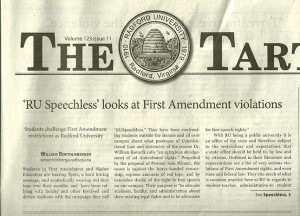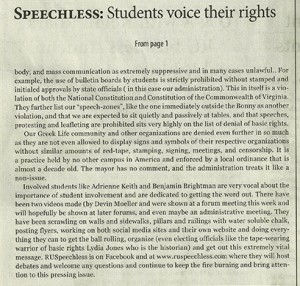 Throughout modern history, colleges have been known for protecting unpopular expression.
Throughout modern history, colleges have been known for protecting unpopular expression.
This blog uses a photo of President Teddy Roosevelt (above) giving a speech defending Professor John Bassett on the Duke University campus in 1903.
Bassett was in danger of being fired for saying he thought Booker T. Washington (an African American leader) was the greatest person the South had ever produced except Robert E. Lee.
Racist newspapers and opinion leaders demanded that Bassett be fired outright for expressing an opinion that, today, would be seen as far too deferential to Gen. Lee.
But the Duke University board refused to fire Bassett, and President Roosevelt took a train south to praise them, saying:
“You stand for Academic Freedom, for the right of private judgment, for a duty more incumbent upon the scholar than upon any other man, to tell the truth as he sees it, to claim for himself and to give to others the largest liberty in seeking after the truth.”
It’s been a long time since any defense of campus speech has been given with such force and clarity.



